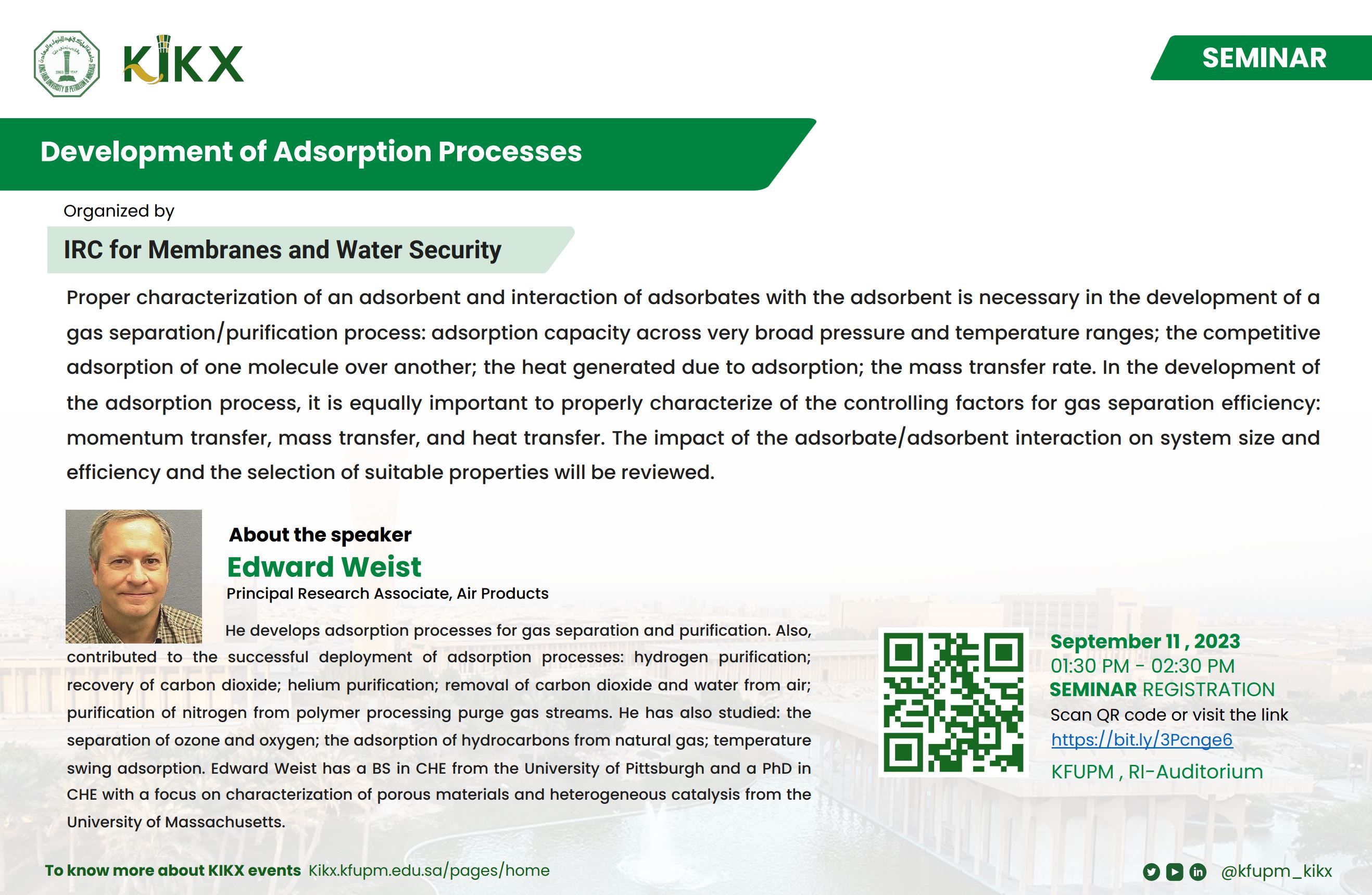Seminar: Development of Adsorption Processes
Organized by: IRC for Membranes and Water Security
Proper characterization of an adsorbent and interaction of adsorbates with the adsorbent is necessary in the development of a gas separation/purification process: adsorption capacity across very broad pressure and temperature ranges; the competitive adsorption of one molecule over another; the heat generated due to adsorption; the mass transfer rate. In the development of the adsorption process, it is equally important to properly characterize of the controlling factors for gas separation efficiency: momentum transfer, mass transfer, and heat transfer. The impact of the adsorbate/adsorbent interaction on system size and efficiency and the selection of suitable properties will be reviewed.
About the speaker
Edward Weist
Principal Research Associate, Air Products
He develops adsorption processes for gas separation and purification. Also, contributed to the successful deployment of adsorption processes: hydrogen purification; recovery of carbon dioxide; helium purification; removal of carbon dioxide and water from air; purification of nitrogen from polymer processing purge gas streams. He has also studied: the separation of ozone and oxygen; the adsorption of hydrocarbons from natural gas; temperature swing adsorption. Edward Weist has a BS in CHE from the University of Pittsburgh and a PhD in CHE with a focus on characterization of porous materials and heterogeneous catalysis from the University of Massachusetts.
